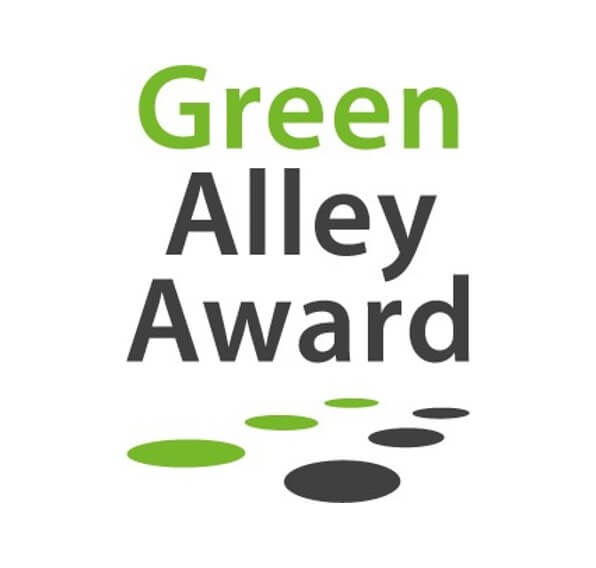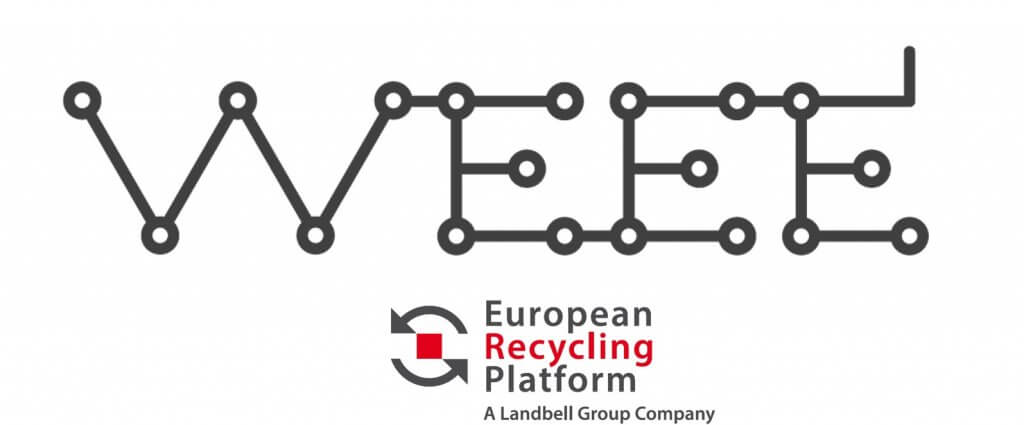Newsletter Issue 1/2020
The latest news from the field of waste management and from our company.
Dear Ladies and Gentlemen,
We hope that everybody is home and stays healthy during these difficult times.
In the first edition of this year’s newsletter we would like to present you some promising topics. Pack2recycle is a new service we provide in order to support you with the optimization of the recycling-capability of your packaging. The Green Alley Award 2020 is approaching, the application period has already started. You’ll get all the relevant information on how to benefit as a participant or as a sponsor. Additionally, we provide you with an update regarding the WEEE Amendment 2020.
Furthermore, interesting studies and research projects have been conducted: - Ecoplus proved with its project “STOP waste – SAVE food”, that optimized packaging contributes to lower food waste and thereby it managed to enhance the reputation of packaging. - Pulswerk LLC conducted a study regarding the use of reusable transport packaging in Austria, where “RePack”, the winner of the Green Alley Award 2014, has a role to play. - A study of the Ministry for Climate Action concludes that in order to accomplish the EU collection quota, the introduction of a deposit system for single-use plastic bottles is nearly unavoidable.

We wish you a pleasant and healthy springtime!
Your ERP Austria team
Pack2recycle – assessment and evaluation of packaging

We would like to present you a new service of the European Recycling Platform (ERP) Austria GmbH as part of the Landbell Group: Pack2recycle. More and more producers are being summoned to announce the recycling capability of their packaging. We are here to support you with the optimization of your packaging regarding the recycling capability and bring you the decisive advantage.
With pack2recycle you safely and transparently fulfil the expectations of commerce and your customers regarding sustainable packaging. With pack2recycle you ensure that your materials can stay within the recycling cycle after being used and can help to preserve our valuable resources.
Please do not hesitate to contact us for any questions at 0043(1)235 01 40 or austria@erp-recycling.org.
Green Alley Award 2020 – Be part of it!

This year, it is already the 7th time that Landbell Group gives away the Green Alley Award, the only start-up prize especially for Circular Economy. With this international award, Landbell Group honours young entrepreneurs who engage themselves in the circular economy.
Apply now! The six best start-ups get invited to the big pitch final in Berlin, where they meet high-ranked experts in mentoring conversations and can present their ideas to an international jury. The winner of the award is going to be rewarded with a prize money of 25,000 €. Applications can be submitted online at https://green-alley-award.com/ until 10th June 2020.
You can also contribute to important topics regarding the future of our environment and support ideas in the field of sustainability: Become a supporter of the Green Alley Award! Your advantages:
- Media attention and positioning of your brand
- Relevant content for e.g. social networks, blogs, company communication
- Early adaptor of sustainable innovations
- Promising investment possibilities
Depending on the extent of your sponsoring, a comprehensive package will be prepared for you - from the placement of your brand to attendance at the award up to jury membership.
Please contact us for further information: austria@erp-recycling.org
WEEE directive – 2020 amendment sent for assessment

On 18th February 2020, the Federal Ministry for Climate Action, Environment, Energy, Mobility, Innovation and Technology sent out the draft of the amendment of the WEEE Directive 2020 for comment.
The amendment shall implement certain requirements of the EU WEEE directive into Austrian law – it serves as an adjustment to EU legislation.
In the planned amendment, an addition of producer responsibilities is going to be applied, in order to transform the EU requirements into national law. Those additions can be summarized as follows:
- Producers must verifiably ensure that the WEEE they take back is not disposed of until after a state-of-the-art treatment procedure.
- A new paragraph stipulates that collectors and recyclers of WEEE must ensure that the preparing for re-use, the recycling and the disposal of toxic substances is carried out under optimal circumstances.
- The WEEE Directive says that it is forbidden to put electric and electronic equipment on the market which contains more than a certain amount of various substances (e.g. 0,1 percent by weight of lead, mercury, etc.). In attachment 2 there is a list of exceptions, which are complemented by the planned amendment.
The planned amendment shall take effect on 1.5.2020.
“STOP waste - SAVE food“ – About the necessity for packaging in the food industry

Ecoplus, the economy agency of Lower Austria, launched the project “STOP waste – SAVE food” to figure out the connection between food packaging and food waste. They were able to prove that optimized packaging helps to reduce commercial food waste and lower the ecological footprint. Furthermore, it could be economically reasonable to invest in sustainable packaging.
Thanks to optimized packaging, which offers better protection for the product, the minimum durability is often prolonged. Due to the variety of the single products, it is not possible to make a blanket statement in this matter. However, research on concrete examples shows a positive trend: Doubling the minimum durability will lower the waste rate in trade by approximately 40 percent.
Innovative and sustainable packaging is known to be expensive. If savings, especially through reduced food waste, are taken into consideration, the result of this expanded economical evaluation often happens to be a win-win-situation where ecological and economical advantage go hand in hand.
Avoiding packaging is often seen as something desirable. However, the eco-balance is not supporting that argument. It rather depends on whether avoiding packaging causes additional food waste. The downside of the additional waste must be compared with the advantage of the avoided packaging.
The complete results and some practical examples of the research project “STOP waste – SAVE food” (2016-2020) can be found here.
Study on reusable transport packaging in Austria

In 2019, the Federal Ministry for Sustainability and Tourism and the Austrian Chamber of Commerce assigned the pulswerk GmbH to execute a study regarding the use of reuseable transport packaging in Austria. To see the complete study, please click here.
Due to the fact that Austria only has little data regarding the use of reuseable transport packaging, the study served to get an overview of the current situation and to deduce measures and suggestions.
For the European Recycling Platform it is particularly pleasing that RePack is mentioned as a best practice example in the shipping industry. In 2014, RePack won the Green Alley Award of Landbell Group. Please klick here for further information.
Possibilities for implementation of EU regulations regarding beverage containers, deposit systems and reusables

The EU directive for reduction of single-use plastic says that until 2025 at least 77% of single-use plastic bottles must be collected separately; at least 90% until 2029. The current quota of single-use plastic bottles is at 70%.
To find out which measurements help the most to reach the quota of 90% (which means an increasement of 20 % within the next nine years), the Federal Ministry for Climate Action, Environment, Energy, Mobility, Innovation and Technology launched a study which has been executed by the technical office Hauer, the University of Natural Resources and Life Sciences and the Leoben University of Mining. After evaluating various alternatives, the authors came to the conclusion that a quota of 90 % is only possible by introducing a single-use deposit system. Other alternatives to meet the target would be much more expensive. A deposit on single use plastic bottles and beverage cans is recommended. The deposit shall uniformly be EUR 0,30.
Regarding the take-back duty, the study suggests that every store with a sales area > 200 square meters is obligated to take back all single-use beverage packages. Stores < 200 square meters only have to take back single-use beverage packages of brands they are currently offering or packages which don’t exceed the volume of packages which are currently offered. The take-back can be fulfilled manually as well as automated.
The funding of the single-use deposit system shall be achieved through revenue of the unclaimed deposits. If and in which scale an allowance is going to be paid out to the commerce sector depends on the organisation of the single-use deposit system.
It is very important to inform and motivate the consumers as well as to clearly designate which beverage containers are single-use and which are not. Only then, a conscious choice can be made by the consumer.
A summary of the study can be found here.
News & Events
Latest news and events
It is not only about process and compliance, but also about networking. ERP shares knowledge, insights, and news so that together we promote the sustainable agenda.
News
October 14th, 2022
“Recycle it all, no matter how small”
News
September 13th, 2022

